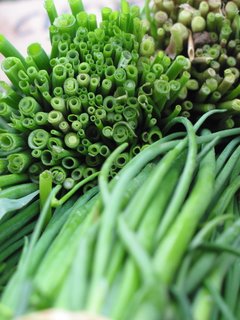CARAWAY DIGESTIVE
Bruise a teaspoon of caraway seed in a mortar and pestle. Pour two cups of boiling water over the seeds and let stand for 15-20 minutes. Sweeten with a little raw honey if desired and take about a half cup 3-4 four times during the day to settle your digestion.
I've taken to tossing it with sweet carrots and shallots for a satisfying autumn side dish
Roasted Carrots with Shallot and Caraway
Preheat your oven to 400 degreesGather about 12 4" long carrots, I like a variety of colors, ranging from crimson to yellow and deep purple. Cut them in half lengthwise, not too thin, but cut in half again if they are very thick.
Peel and thinly slice 3-4 shallots
Toss the carrots and the shallots with some fruity olive oil and season with 1/2 t salt and 1 t of caraway seeds. Add a bit of freshly ground pepper if you like, but I often do that after they are roasted.
Roast for about 20 minutes or until you are able to pierce with a fork.
Serve with a squeeze of lemon juice. This is also delicious with a crumble of goat milk feta













No comments:
Post a Comment